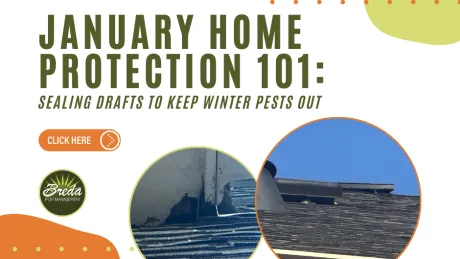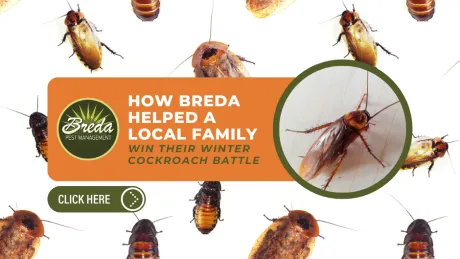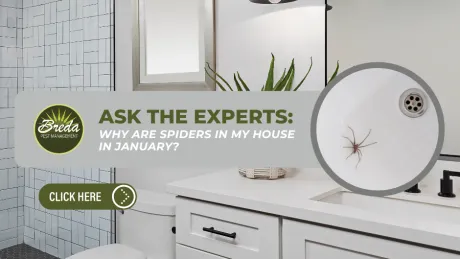Mosquitoes, ants, roaches, silverfish, and spiders in your home can be terribly annoying and inconvenient. However, they are crucial to the local ecosystem. Bugs provide a valuable addition to the food chain and help support and sustain the lives of many other creatures.
At Breda Pest Management, we prefer to control, rather than kill, all insects. No, you don't want them in your house. But they do belong in the natural environment outside.
5 Reasons Bugs Are Important To Humans
1. Insects Recycle
More than 1.5 million species of insects have been named, with more yet to be discovered. Many species of insects recycle plant material. Termites consume wood, breaking down dead trees. Other insects feed on dead leaves, decaying animals, and other materials in the environment. Flies, for example, eat everything from fruits to animal waste and rotting meat. Without our insect recyclers, we would drown in our own natural wastes.
2. Pollinator Proud
Almost everyone knows that bees pollinate flowers. They are an important link in the chain that produces nuts, fruits, seeds, and vegetables. Beetles, however, are also effective pollinators. Beetles are actually responsible for pollinating 88 percent of the world's plants!
This process, in which insects transfer pollen from one plant to another in search of nectar and other nutrients, plays a critical role in the ecosystem and the economy. 75 percent of flowering plant species rely on insects to pollinate other plants for fertilization. About one third of all food and beverages are delivered by pollinators. In the US alone, $20 billion worth of products are produced annually due to pollination.
3. Controlling Bad Bugs
Gardeners appreciate the action of insects, especially predatory ones. The praying mantis eats other insects and can control so-called 'bad bugs.' Ladybugs (or the Asian lady beetle) eats aphids. Predatory wasps lay eggs on tomato horn worm caterpillars and keep them from destroying tomato crops. Even creepy spiders can eat insects like mosquitoes, flies, and moths. Some species of spiders even eat other spider species. The long legged cellar spider, for example, is known to feast upon black widow spiders, making it an exceptional ally. Insects can be our friends in the garden ecosystem.
4. Stronger Plants
The National Science Foundation (as reported by the Forestry Service) conducted a study with evening primrose plants grown on insecticide-laced fields. They found that within several generations, plants sprayed with insecticides lost their natural resistance to insects. Eradicating all bugs or specific insect species in your neighborhood may not be a good thing after all.
5. Food for Life
Insects are the only food that sustains certain species of birds, fish and amphibians. Without insect life, the food chain would be severely compromised, since many higher order animals and birds rely upon lower ones for food. If the insects were to be destroyed, many species would also be wiped out.
When insects appear in your home, remember that the local ecosystem needs them not just to survive, but to thrive. Instead of an all-kill program, make yours an all-clear program. Focus on pest management instead of eradication.



